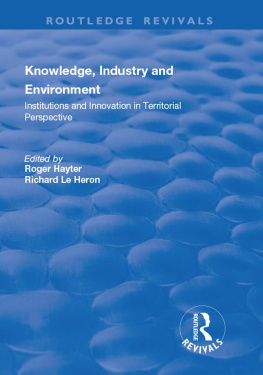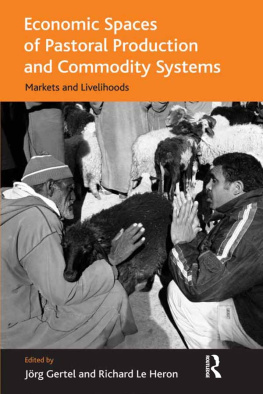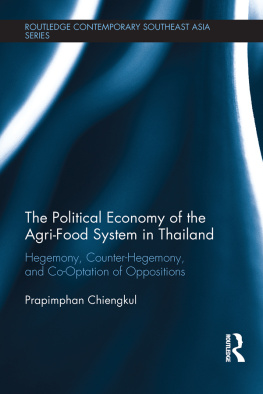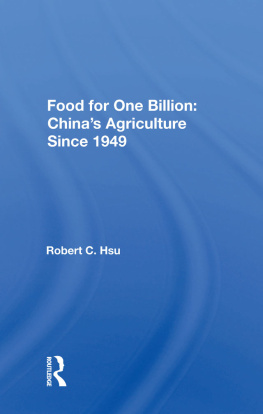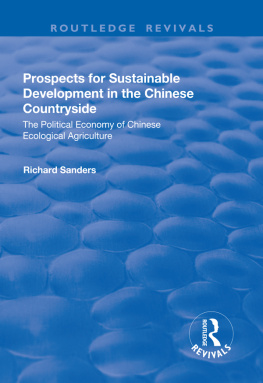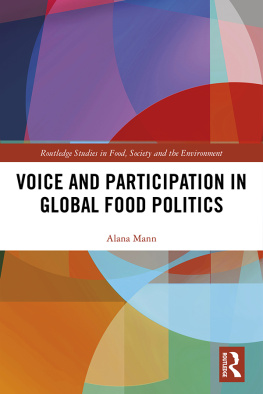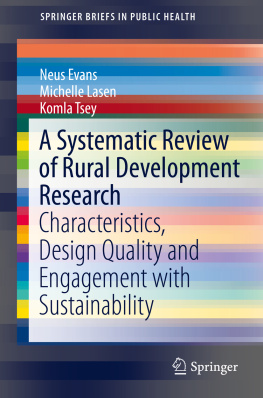Biological Economies
Recent agri-food studies, including commodity systems, the political economy of agriculture, regional development, and wider examinations of the rural dimension in economic geography and rural sociology have been confronted by three challenges. These can be summarized as: more than human approaches to economic life; a post-structural political economy of food and agriculture; and calls for more enactive, performative research approaches.
This volume describes the genealogy of such approaches, drawing on the reflective insights of more than five years of international engagement and research. It demonstrates the kinds of new work being generated under these approaches and provides a means for exploring how they should be all understood as part of the same broader need to review theory and methods in the study of food, agriculture, rural development, and economic geography. This radical collective approach is elaborated as the biological economies approach. The authors break out from traditional categories of analysis, reconceptualising materialities, and reframing economic assemblages as biological economies, based on the notion of all research being enactive or performative.
Richard Le Heron is Professor of Geography, School of Environment, The University of Auckland, New Zealand.
Hugh Campbell is Chair of Sociology, Department of Sociology, Gender and Social Work, University of Otago, New Zealand.
Nick Lewis is Associate Professor in Geography, School of Environment, The University of Auckland, New Zealand.
Michael Carolan is Chair of Sociology, Department of Sociology, Colorado State University, USA.
Routledge Studies in Food, Society and the Environment
Street Food
Culture, economy, health and governance
Edited by Ryzia de Cassia Vieira Cardoso, Michle Companion and Stefano Roberto Marras
Savoring Alternative Food
School gardens, healthy eating and visceral difference
Jessica Hayes-Conroy
Human Rights and the Food Sovereignty Movement
Reclaiming control
Priscilla Claeys
Food Utopias
Reimagining citizenship, ethics and community
Edited by Paul Stock, Michael Carolan and Christopher Rosin
Food Sovereignty in International Context
Discourse, politics and practice of place
Edited by Amy Trauger
Global Food Security Governance
Civil society engagement in the reformed Committee on World Food Security
Jessica Duncan
Civic Engagement in Food System Governance
A comparative perspective of American and British local food movements
Alan R. Hunt
Biological Economies
Experimentation and the politics of agri-food frontiers
Edited by Richard Le Heron, Hugh Campbell, Nick Lewis and Michael Carolan
For further details please visit the series page on the Routledge website: http://www.routledge.com/books/series/RSFSE/
In Biological Economies, Le Heron and colleagues offer up a path-breaking analysis at the nexus of key agri-food studies issues and propel the reader through existing contradictions and tensions to help us imagine how agri-food systems can be transformed. In defining key international strands, this book enables the reader to both understand the state of the art in food studies and to reconstitute the pieces we have on hand into a more productive whole. Alison Blay-Palmer, Centre for International Governance Innovation Chair in Sustainable Food Systems, Waterloo, Canada.
If we are what we eat, then who do we become when we choose to eat differently? This brilliant book offers inspiring answers to this important question. It ranges far beyond the familiar criticisms of processed food, fast food and chemical-intensive farming. It presents arguments for, and examples of, new and better ways to embed food in our material and moral lives. Noel Castree, University Manchester, UK, and University of Wollongong, Australia.
An important and timely intervention in agri-food studies, Biological Economies has mind-melting ambitions disrupting orthodox categories and fostering a new research agenda. Radically relational, the books transformative potential is illustrated via a series of provocative case studies. Peter Jackson, University of Sheffield, UK.
If you like your agrifoodstudies savvy, layered, decentred, well-storied and lively, this is your book! The cases are varied, the curiosity and dedication run all the way through. Annemarie Mol, University of Amsterdam, the Netherlands.
Biological Economies is a fascinating collection that breaks new ground in agri-food research. Conceptually and methodologically innovative and supported by rich and diverse case studies, this is a must-read for anyone interested in the political-economies of food in the twenty-first century. Michael Woods, Aberystwyth University, UK.
Biological Economies
Experimentation and the politics
of agri-food frontiers
Edited by Richard Le Heron,
Hugh Campbell, Nick Lewis
and Michael Carolan

First published 2016
by Routledge
2 Park Square, Milton Park, Abingdon, Oxon OX14 4RN
and by Routledge
711 Third Avenue, New York, NY 10017
Routledge is an imprint of the Taylor & Francis Group, an informa business
2016 Richard Le Heron, Hugh Campbell, Nick Lewis and Michael Carolan, selection and editorial material; individual chapters, the contributors
The right of the editors to be identified as the authors of the editorial material, and of the authors for their individual chapters, has been asserted in accordance with sections 77 and 78 of the Copyright, Designs and Patents Act 1988.
All rights reserved. No part of this book may be reprinted or reproduced or utilised in any form or by any electronic, mechanical, or other means, now known or hereafter invented, including photocopying and recording, or in any information storage or retrieval system, without permission in writing from the publishers.
Trademark notice: Product or corporate names may be trademarks or registered trademarks, and are used only for identification and explanation without intent to infringe.
British Library Cataloguing-in-Publication Data
A catalogue record for this book is available from the British Library
Library of Congress Cataloging in Publication Data
Names: Le Heron, Richard B., editor.
Title: Biological economies : experimentation and the politics of agri-food frontiers / edited by Richard Le Heron, Hugh Campbell, Nick Lewis and Michael Carolan.
Description: London ; New York : Routledge, 2016. | Series: Routledge studies in food, society and environment | Includes bibliographical references and index.
Identifiers: LCCN 2015030225 | ISBN 9781138843011 (hbk) | ISBN 9781315731124 (ebk)
Subjects: LCSH: AgricultureEconomic aspects. | AgricultureSocial aspects. | Agriculture and state. | Agricultural industries. | Rural development.
Classification: LCC HD1415 .B525 2016 | DDC 338.1/9dc23
LC record available at http://lccn.loc.gov/2015030225
ISBN: 978-1-138-84301-1 (hbk)
ISBN: 978-1-315-73112-4 (ebk)
Typeset in Bembo
by Swales & Willis Ltd, Exeter, Devon, UK
Contents
NICK LEWIS, RICHARD LE HERON, MICHAEL CAROLAN, HUGH CAMPBELL AND TERRY MARSDEN
PART 1
Re-making knowledges of agri-food
DAVID EVANS
GARETH ENTICOTT
JANKA LINKE
JRMIE FORNEY
ANGGA DWIARTAMA, CHRISTOPHER ROSIN AND HUGH CAMPBELL
MATTHEW HENRY AND MICHAEL ROCHE
Next page

